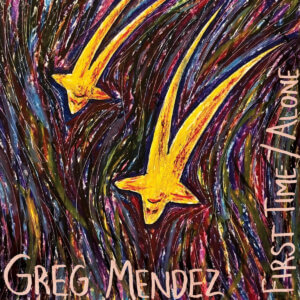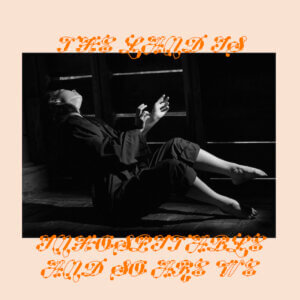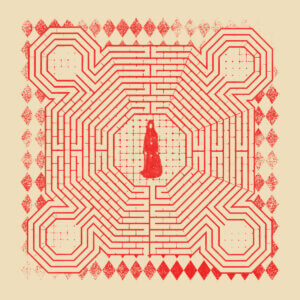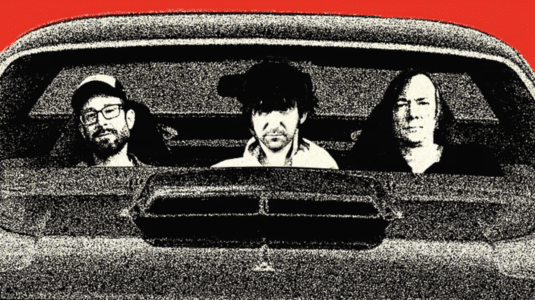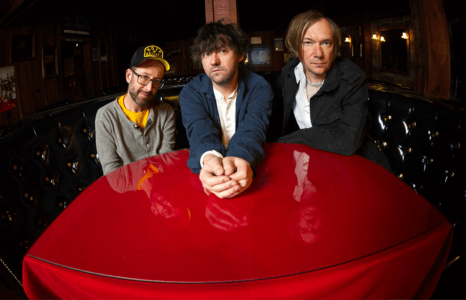
9.0
Down In The Weeds, Where The Old World Once Was
Bright Eyes
It is an interesting thing to see all the musicians we grew up listening to, the young vanguard, the tastemakers, not only growing up but getting older. Even when they have been continually making new records all these years since their coming out parties, there is an underlying feeling over the last couple album cycles that these artists are embracing and accepting where they are now in their lives. Decades earlier when they were writing pointed songs about what it’s like to be growing up and critiquing the older generation, they are now essentially the older generation. In 2011, Conor Oberst and his Bright Eyes cohorts Nathaniel Walcott and Mike Mogis deemed that chapter of their lives closed with the “final” Bright Eyes album The People’s Key. Five solo albums, a detour with his post hardcore outfit Desaparecidos and a stellar collaboration with Phoebe Bridgers and The Better Oblivion Community Centre, Oberst, Walcott and Mills are back with their tenth Bright Eyes studio album Down In The Weeds, Where The Old World Once Was and they sound as refreshed and vital as they ever have. A lot of time has passed, not in just years but in living, but this experience has only solidified the trio as some of the better collaborators of their own and, ultimately, any generation.
The album kicks off as many Bright Eyes records do with “Pageturner’s Rag”, a bit of a musical and spoken word experiment. This time a combination of Spanish and English that sets the tone for what will come, which is a collection of songs held together by themes of regret, loss, beauty and salvation that are all delivered with the type of authority that can only be derived by working with trusted friends. “Dance and Sing” kicks off with Obert’s familiar, comforting voice and the type of lyrics that he and very few others can get away with. The drums come in and the strings swell as Oberst sings, “I’ll grieve/What I have lost/Forgive the firing squad/How imperfect life can be/Now all I can do/Is just dance on through” and it’s like coming home to an old friend. The album isn’t just nostalgia though. The songs are some of the strongest Oberst has penned in years and the band’s adeptness at basically doing whatever they want and yet making everything into cohesive arrangements is laudable. A lot of what we hear throughout Down In The Weeds, Where The World Once Was, seems to be inspired directly from the dissolution of Oberst’s marriage and his reconciling with everything surrounding that. The waltz-y groove of “Just Once In The World” starts on acoustic guitar and expands into a powerful full band piece, seeing Oberst singing, “Swallow hard and say you’re sorry/Just admit what you have done” and, as always with him, he is able to sell the emotion behind it all. Lead single “Mariana’s Trench” is quintessential Bright Eyes. Synths swirl around a bouncy bass line and some muted drums.
Even with its very realistic message about the state of the world, there is some genuine catharsis when he sings in the chorus “Look up at that Everest/Look down in that Mariana Trench/Look now as the crumbling 405 falls down/When the big one hits/Look out for the plainclothes/Look out for what the wiretap knows/Look out on the ever-widening money trail and where it goes”. When the horns and the double time drums explode in the bridge and just as the tension filled pause propels us back into the chorus, you hear the sound of a band at the top of its game. Bright Eyes tackle aging in “One And Done”. Oberst sings off the top over reverb speckled drums, “My old pal looks shaky with a cigarette in his hand/Salt and pepper sprinkled on his face and on his head/Looks like he might start crying, is it just something that I said/Let’s take a walk around the block/This fleeting feeling is infinite” and the feeling invoked is more than fleeting it is recognizably honest and that sticks with you. Plus, we get the added bonus of Oberst causally finishing a rhyming couplet with “Anthropocene” which is a treat unto itself. “Persona Non Grata” bears the weight of the feelings associated with Oberst’s dissolved union. He sings, with tortured rasp, “And now you, you come to me, asking that/And now you, you come to me, and you’re asking that/Oh how can we reconcile?” and over the bagpipes, that add an extra layer of melodrama to the song, you hear how much he means this. “Calais to Dover” stands out as another highlight on the album with its jaunty groove and soaring melody. Oberst reaches a new level of emotion in the chorus singing, “Now that you’re gone/Now that I’m out here on my own/It won’t be long/’Til I have to pay for what I’ve done.”
Mogis and Walcott keep everything moving, adding layer upon layer of support to Oberst’s words and they keep the songs feeling as open and airy as possible with everything going on. The production throughout Down In The Weeds, Where The World Once Was is positively perfect. Nothing gets bogged down at any point and whether it’s an 80s sounding synth pad, an absolutely shredding guitar solo, a lonely horn or string section, it all fits wonderfully into place, lifting up the songs. A decade has passed since we heard Bright Eyes and while so much has happened in that time, not only musically but just in the world, having this new collection of songs by these artists couldn’t feel more timely. This isn’t a reunion record in the cynical way that most reunion records come about. Bright Eyes didn’t need to get back together and no one was especially clamouring for it but it is such a nice surprise and the record couldn’t have come at a more perfect time. Yes, the artists we grew up with may not be the young upstarts they once were but through the turbulence of life and a dedication to their craft they’ve become so much better than we could’ve hoped for and that is the most inspiring takeaway of all.
review by Adam Fink
Latest Reviews
Tracks
Related Albums
Related News
Advertisement
Looking for something new to listen to?
Sign up to our all-new newsletter for top-notch reviews, news, videos and playlists.





